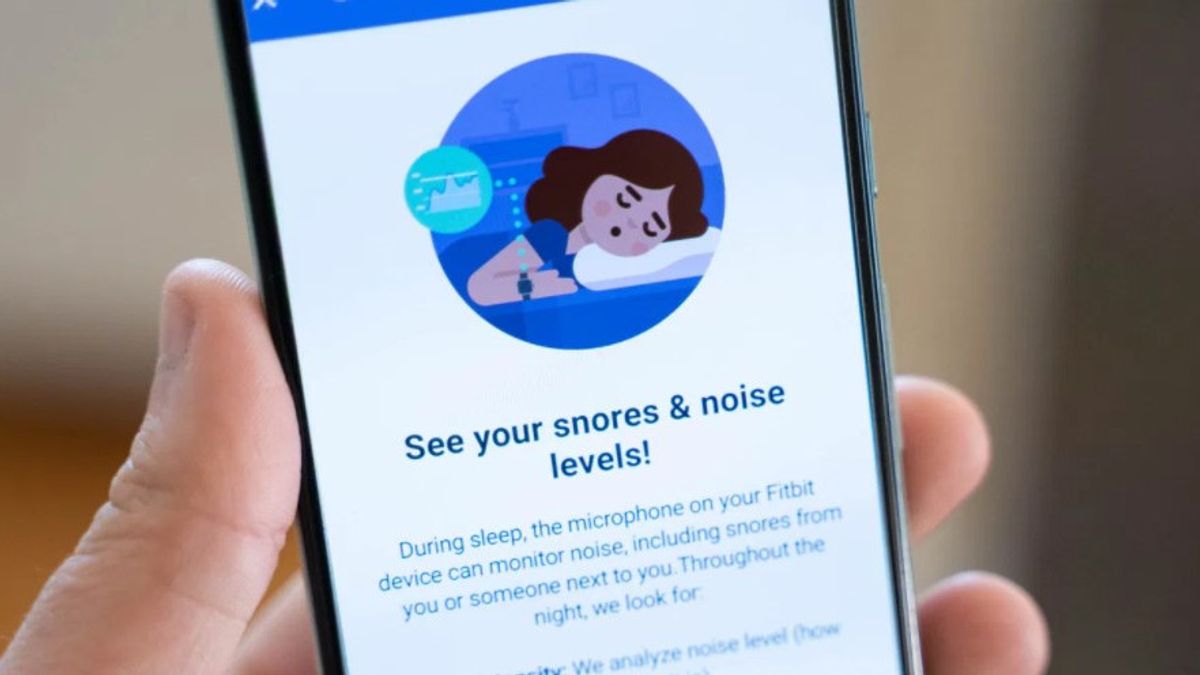JAKARTA - Since 2017, Fitbit has offered a sleep monitoring feature on its smartwatch. From the very beginning, the main function of this feature is to measure heart rate and movement. This data is then collected and analyzed so that you can better understand your sleep cycle.
Soon, the Fitbit smartwatch you are using will have more advanced features. Based on the test results of the 9to5google team that dismantled the innards of the Fitbit application, it was found that the presence of noise and snoring detection feature was almost perfect.
As we can conclude from the name, this feature will change the microphone on the tracking gadget or smartwatch to calculate how long someone snores. The collected data will be presented in percentage form, then grouped into three categories.
For example, if you spend 10 to 40 percent of your sleep snoring, Fitbit will categorize it as an intermediate case. Unfortunately, according to Fitbit's acknowledgment via Endgadget, the feature can't yet tell who made the sound.
This means that if your partner also snores, their voice will also be included in the data and mixed with your personal data.

SEE ALSO:
It can detect room noise
The snoring detector, aka the sound of snoring, is one thing that Fitbit can detect. Later, your Fitbit device will be able to detect the noise level of the room while sleeping.
Just like a snoring detector, this feature will notify users of noise levels based on certain categories. From 'very quiet' – a classification of 30 dBA or more to a count of up to 90 dBA.
The way these feature works is by turning on the microphone all night so that the performance of the feature is more optimal, it certainly makes the battery wasteful. Therefore, the company recommends that users recharge to a minimum of 40 percent just before going to bed.
In addition, Fitbit also recommends that users do not play music or other sounds during sleep. Thus, the data obtained and processed can be more valid.
The English, Chinese, Japanese, Arabic, and French versions are automatically generated by the AI. So there may still be inaccuracies in translating, please always see Indonesian as our main language. (system supported by DigitalSiber.id)













